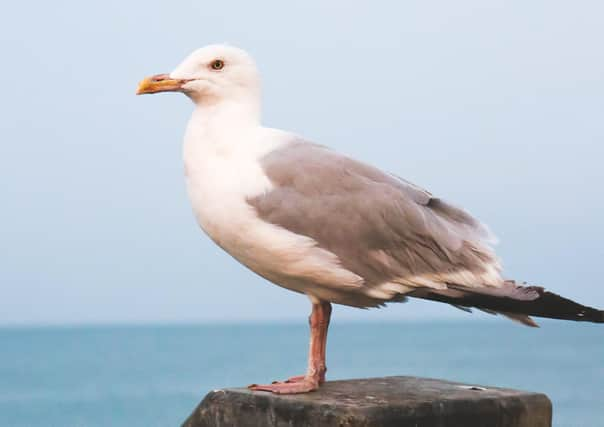People asked to stop feeding Adur and Worthing seagulls following spike in complaints


“A gull can’t discern between a sausage roll dropped on the floor for free-picking and the one you’re unwrapping for lunch.”
That was the warning from the RSPB as Adur & Worthing Councils advised people against feeding seagulls after seeing ‘a spike in complaints concerning noise and disruption caused by the birds’.
Advertisement
Hide AdAdvertisement
Hide AdThe councils said there had been a rise in the number of reports of gulls being fed from home addresses since lockdown was introduced, leading to an increase in the amount of discarded rubbish.
Gull colonies have also been known to attack people in a bid to steal food, while regular feeding at homes can lead to damage to roofs and gutters and blockages of gas flues by nesting materials.
A spokesman for Adur & Worthing Councils said: “Gulls are iconic to seaside towns like Worthing and as a nation of animal-lovers the councils here understand people may be thinking they are doing the right thing by feeding gulls.
“But we are getting multiple complaints about people excessively feeding seagulls at their home addresses and this is dangerous for gulls and their nutritional benefit, as the food they are being given is not their natural diet.
Advertisement
Hide AdAdvertisement
Hide Ad“The message from Adur & Worthing Councils is that it really isn’t a good idea to feed seagulls and because of the problems it causes both them and us.”
Adur councillor Joss Loader, who represents Shoreham Beach’s Marine ward, said: “Gulls are majestic birds and their haunting, atmospheric cry is very much part of living by the coast.
“It’s important to remember that there are no laws to prevent people from putting down small amounts of food and I have received no concerns from Shoreham Beach residents this summer about excessive or inappropriate feeding.
“What I do receive – very regularly – is complaints about people failing to dispose of household rubbish and food waste appropriately.
Advertisement
Hide AdAdvertisement
Hide Ad“Bags are often left by domestic and public bins and foxes and gulls inevitably pull them apart and scatter the rubbish. This is what animals do – my own dog would do so, given half a chance.
“We then have windblown rubbish, which is bad for the environment – particularly if plastic ends up in the river or sea. Unfortunately, there have been some very unpleasant comments about gulls on social media, including references to flying rats and vermin. It’s important to remember that gulls are protected by law and this is very much their habitat.
“Humans will always pose a far bigger threat to the planet than any bird or animal.”
The three breeds of gulls that are commonly found in urban environments are herring gulls, great black-backed gulls and lesser black-backed gulls. All birds, including gulls, are protected under the Wildlife and Countryside Act 1981.
Advertisement
Hide AdAdvertisement
Hide AdThe RSPCA says the best and most-humane ways of discouraging nesting in homes is to use simple wire-frame structures around chimney pots and anti-perching devices such as spines, which should be fitted professionally. Homeowners are also advised to clear moss and plants from roofs and gutters.
According to experts, gulls snatching food is a learned behaviour that is reinforced by being fed by the public
The noisiest time of the year for gulls is the breeding season, between May and July, and they say the best way to avoid disturbances is by taking action in the winter to limit the opportunity for gulls to settle or nest on properties.
An RSPB spokeswoman said: “If a gull feels that you’re too close to its youngster, and so a potential threat, it will fly over you at great speed and alarmingly close – rarely making contact the first time. This is a warning – it’s meant to frighten you into backing off.
Advertisement
Hide AdAdvertisement
Hide Ad“We must all stop feeding gulls both inland and in seaside towns and in our gardens if we want to recondition their behaviour.
“A gull can’t discern between a sausage roll dropped on the floor for free-picking and the one you’re unwrapping for lunch in the local park.”